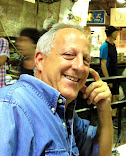Taking back the banner of Human Rights - Sharansky article in NY Times May 17
A Moment of Moral Clarity
By NATAN SHARANSKY
How many protesters must a regime murder before it is no longer fit for a seat on the U.N. Human Rights Council? How many thousands of dissidents must it jail? How many acts of international terrorism must it instigate?
The line is invisible — but Syria, having too openly crossed it, has now been forced to vacate its candidacy in the May 20 elections to the council.
It is good that Syria has been removed, just as it is good that Libya has been suspended from membership.
But what was Muammar el-Qaddafi’s blood-soaked regime doing on a human-rights body in the first place? What separates it and Syria from Cuba, China and the other dictatorships that make up the council majority and brazenly sit in judgment on the human-rights record of others? Why has the free world remained largely silent? In the run-up to the elections, such questions are more urgent than ever.
Something very important and very dramatic is happening in the Arab-Muslim Middle East. The peoples of the region are deciding to stop living in fear, and are risking life and limb to rid themselves of one seemingly immovable autocracy after another.
In so doing, they are simultaneously repudiating the unspoken agreements that the West has reached over the years with their dictators, agreements that bartered the people’s freedom for a facade of stability.
But while masses of people in the Middle East are demonstrating in the streets for freedom, the free world itself, led by the United States, has responded in classic realpolitik fashion, calibrating its response to each regime’s perceived chances for survival.
This is understandable. After so many years of supporting Hosni Mubarak, it was difficult to acknowledge him for the corrupt dictator he always was. After convincing itself that Bashar al-Assad was a reformer, a White House wishing to engage the regime on “the day after” was incapable of saying what Syrians already knew: that he was a barbaric tyrant and murderer.
But silence and confusion have exacted a price. To the people in the streets, to the millions who have crossed their own line from fear to freedom, the signal has been sent that America is not with them, that the world’s beacon of freedom is indifferent to theirs.
In the face of regime turmoil, many have insisted that Washington must choose between the two stark alternatives of engagement and disengagement. This is a fallacy. Engaging with a dictatorial regime and engaging with its people are two different things, and the same goes for disengagement. The United States engaged with and subsidized the dictatorship in Cairo, and America is cordially hated by Egyptians; the United States and the mullahs in Tehran could not be more disengaged, and America is loved by the Iranians.
When Ronald Reagan pronounced the Soviet Union an “evil empire,” the partisans of Western engagement were horrified, but throughout that evil empire Reagan’s truth-telling brought courage to dissidents and a surge of hope to hundreds of millions desperate to escape the bonds of a fear-permeated society.
Reagan did not thereupon cease negotiating with the Kremlin. At the same time, however, his administration encouraged the struggle of ever-growing numbers of Soviet and East European dissidents — with results that, starting with the fall of the Berlin Wall in 1989, shook the world.
There may be no evil “empire” in today’s Middle East, but there are more than enough evil regimes to go around. It is past time to start delegitimizing them. What, indeed, must a dictator do to lose the respect of the international community, or to trigger action against him?
It is not a matter of sending troops — another straw man. It is a matter of saying, not softly but loudly and in the clearest possible terms, that those who violate the human rights of their people cannot be our partners in building a world safe for human rights.
It may be necessary to deliberate the pros and cons of engaging with a dictatorial regime, but there is no need to deliberate engaging with its people.
To those millions crossing, or waiting to cross, the line into freedom, we can send a simple but thrilling message of support and solidarity: We are with you. No dictator is a legitimate representative of his people. “Human rights” are not a phrase to be cynically parroted by the world’s worst violators sitting on a grotesquely misnamed Human Rights Council, but a real and universal criterion of decency. We are with you.
At this moment of moral clarity, when the free world is being challenged to cease turning a blind eye to tyranny, surely it is not too much to affirm full-throatedly the aspirations of the Arab and Muslim peoples to live in freedom, to choose their own governments, to be protected in their right to dissent, and no longer to be ruled by guns.
At the very least, we, who would never choose differently for ourselves, owe this much to them, and to ourselves.
Natan Sharansky, a former Soviet political prisoner, is chairman of the Jewish Agency and the author, most recently, of “The Case for Democracy: The Power of Freedom to Overcome Tyranny and Terror.”

Comments